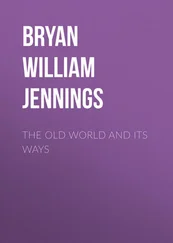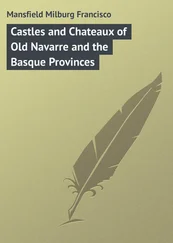John Gerard - The Old Riddle and the Newest Answer
Здесь есть возможность читать онлайн «John Gerard - The Old Riddle and the Newest Answer» — ознакомительный отрывок электронной книги совершенно бесплатно, а после прочтения отрывка купить полную версию. В некоторых случаях можно слушать аудио, скачать через торрент в формате fb2 и присутствует краткое содержание. Жанр: foreign_religion, foreign_antique, foreign_prose, на английском языке. Описание произведения, (предисловие) а так же отзывы посетителей доступны на портале библиотеки ЛибКат.
- Название:The Old Riddle and the Newest Answer
- Автор:
- Жанр:
- Год:неизвестен
- ISBN:нет данных
- Рейтинг книги:4 / 5. Голосов: 1
-
Избранное:Добавить в избранное
- Отзывы:
-
Ваша оценка:
- 80
- 1
- 2
- 3
- 4
- 5
The Old Riddle and the Newest Answer: краткое содержание, описание и аннотация
Предлагаем к чтению аннотацию, описание, краткое содержание или предисловие (зависит от того, что написал сам автор книги «The Old Riddle and the Newest Answer»). Если вы не нашли необходимую информацию о книге — напишите в комментариях, мы постараемся отыскать её.
The Old Riddle and the Newest Answer — читать онлайн ознакомительный отрывок
Ниже представлен текст книги, разбитый по страницам. Система сохранения места последней прочитанной страницы, позволяет с удобством читать онлайн бесплатно книгу «The Old Riddle and the Newest Answer», без необходимости каждый раз заново искать на чём Вы остановились. Поставьте закладку, и сможете в любой момент перейти на страницу, на которой закончили чтение.
Интервал:
Закладка:
Given this first beginning of the cosmogonic movement, it is easy, on mathematical principles, to deduce and mathematically establish the further phenomena of the foundation of the cosmic bodies, the separation of the planets, and so forth.
Nor are we to suppose that the beginning of this particular process was in any true sense a beginning at all. Evolutionary philosophy such as Professor Haeckel's, necessarily teaches that beginnings and endings succeed one another everlastingly, one world-system arising phoenix-like from the ashes of another.
The nebular hypothesis above described has recently [we are told] 13 13 Ibid.
been strongly confirmed and enlarged by the theory that this cosmogonic process did not simply take place once, but is periodically repeated. While new cosmic bodies arise and develop, out of rotating masses of nebula in some parts of the universe, in other parts old, extinct, frigid suns come into collision, and are once more reduced by the heat generated to the condition of nebulæ.
It appears, in fact, to be assumed that this cyclic process has been actually demonstrated, for we are told 14 14 Ibid. , p. 2.
that astronomy reveals, in the endless depths of space, "Millions of circling spheres, larger than our earth, and, like it, in an eternal rhythm of life and death."
Moreover, "life" is here to be understood literally, for it is a cardinal article of such evolutionary belief that equally with the foundation of cosmic bodies and the separation of planets, the production of organic life, of plants and animals, has been wrought by forces which the material universe contains within itself, 15 15 The 15th Chapter of Haeckel's Natural History of Creation is devoted to this point.
and accordingly, 16 16 Confession of Faith of a Man of Science , p. 32.
We now definitely know that the organic world on our earth has been continuously developed "in accordance with eternal iron laws." … An unbroken series of natural events, following an orderly course of evolution according to fixed laws, now leads the reflecting human spirit through long aeons from a primeval chaos to the present order of the cosmos.
Finally, at the back of all these processes, we are to recognize the one ultimate reality, the universe itself, which originates and undergoes all these evolutions. In its regard Professor Haeckel tells us 17 17 Riddle of the Universe , p. 5.
that,
The universe, or cosmos, is eternal, infinite, and illimitable. Its substance, with its two attributes (matter and energy) fills infinite space and is in eternal motion. This motion runs on through infinite time as an unbroken development, with a periodic change from life to death, from evolution to devolution…
And again: 18 18 Ibid. , p. 78.
The two fundamental forms of substances, ponderable matter and ether, are not dead and moved only by extrinsic force, but they are endowed also with sensation and will (though naturally of the lowest grade); they experience an inclination for condensation, a dislike of strain; they strive after the one and struggle against the other.
Moreover,
Movement 19 19 Ibid. , p. 86.
is as innate and original a property of substances as is sensation.
Such is the raw material whose metamorphoses produce, or rather constitute, all possible worlds, while paramount over every thing dominates the "Law of Substance," under which title Professor Haeckel unites the scientific principles of the indestructibility of matter, and the conservation of energy. Thus is the conclusion reached, 20 20 Ibid. , 134.
Towering above all the achievements and discoveries of the century we have the great comprehensive "law of substance," the fundamental law of the constancy of matter and force. The fact that substance is everywhere subject to eternal movement and transformation gives it the character also of the universal law of evolution. As this supreme law has been firmly established and all others are subordinate to it, we arrive at a conviction of the universal unity of nature and the eternal validity of its laws.
Accordingly we are to conclude with Goethe that all proceeds by iron law to the fulfilling of inevitable destiny; or as an ardent disciple proclaims, who undertakes to expound the new creed to the people, 21 21 An Easy Outline of Evolution , by Dennis Hird, M.A., Principal of Ruskin Hall, Oxford, p. 230.
We rest in sure and certain hope that no force and no combination of forces can stop the process of Evolution, which from a speck of jelly has developed such living forms as Charles Darwin and Herbert Spencer, and which has produced the beauty of the earth and the heavens from formless ether.
This outline of the Evolutionary system in its widest and fullest sense will enable us to judge upon what grounds it can claim the sanction of Science. Various points here present themselves for consideration, which demand separate treatment.
V
WHAT IS A "LAW OF NATURE"?
AS we have seen, the doctrine of Evolution is presented by its advocates as being based upon the existence of a "Law of Evolution," or "Law of Substance," which both brings about evolutionary processes, and certifies us of their occurrence, so that we may appeal to it as an authority for our belief in the facts of evolution themselves. Thus as Professor Milnes Marshall told the British Association, 22 22 Presidential Address , Section D , Zoology , Leeds, 1890.
The doctrine of descent, or of evolution, teaches us that as individual animals arise, not spontaneously, but by direct descent from pre-existing animals, so also is it with species, with families, and with larger groups of animals, and so also has it been for all time.
It is not said, be it observed, that the establishment of such facts teaches us the doctrine of evolution, but that the doctrine assures us of the facts; and the utterances constantly met with, of which the above is a fair sample, have no signification if they do not mean this. In the same way Professor Haeckel declares 23 23 Riddle of the Universe , p. 2.
that his fundamental cosmic law "establishes" the eternal persistence of matter and force, and their unvarying constancy throughout the entire universe, becoming thus "the pole-star that guides our Philosophy through the mighty labyrinth to a solution of the world problem," and the key to this supreme problem, he further tells us, 24 24 Ibid. , p. 83.
is found in one magic word – Evolution.
It would certainly appear from all this, that by "Evolution" we are to understand some sort of entity at the back of the world, with power at its disposal capable of effecting all its operations, – something in fact remarkably like the First Cause of which we are in search, – and that by its "Laws" are signified some definite forces, the practical action of which has been ascertained by us, so that we can foretell the course of events under them, as we can that of the planets or the tides under the influence of gravitation.
But is it scientific, or even intelligible, to use words thus, and to assign any such significance to such terms as "Law of Evolution," "Law of Substance," or any other "Law of Nature"? We are repeatedly warned to the contrary by so high an authority as Professor Huxley. Once, for instance, he discovered in a sermon of Canon Liddon's this "fallacious employment of the name of a scientific conception," for which it was however added, the preacher "could find only too many scientific precedents." 25 25 "Pseudo-Scientific Realism," Collected Essays , i, 68, 74-78.
This fallacious use of terms, which nowise differs from that under consideration, Professor Huxley thus denounces:
Интервал:
Закладка:
Похожие книги на «The Old Riddle and the Newest Answer»
Представляем Вашему вниманию похожие книги на «The Old Riddle and the Newest Answer» списком для выбора. Мы отобрали схожую по названию и смыслу литературу в надежде предоставить читателям больше вариантов отыскать новые, интересные, ещё непрочитанные произведения.
Обсуждение, отзывы о книге «The Old Riddle and the Newest Answer» и просто собственные мнения читателей. Оставьте ваши комментарии, напишите, что Вы думаете о произведении, его смысле или главных героях. Укажите что конкретно понравилось, а что нет, и почему Вы так считаете.












